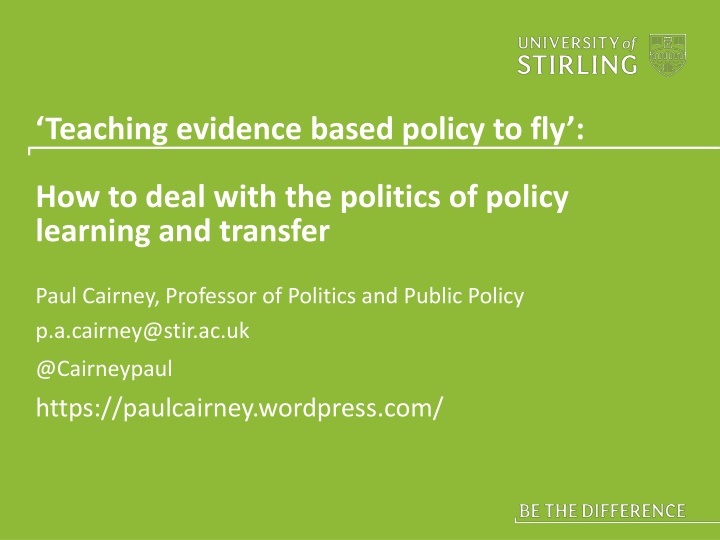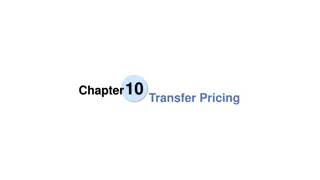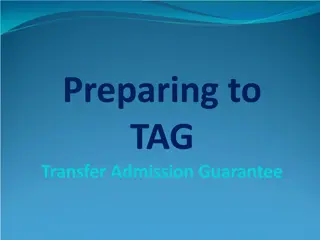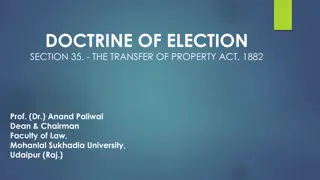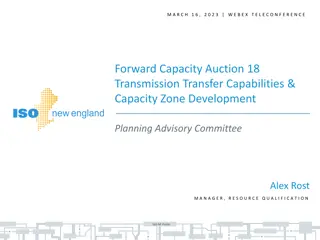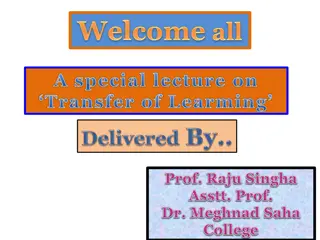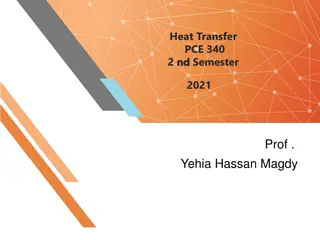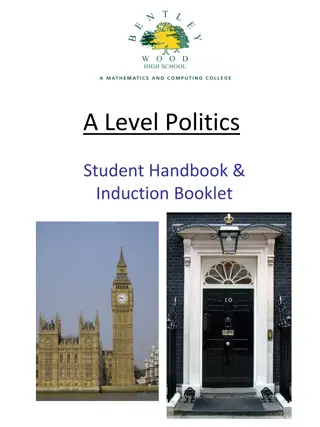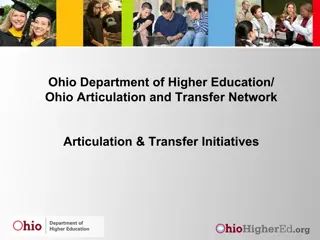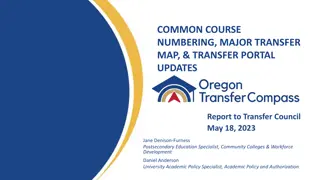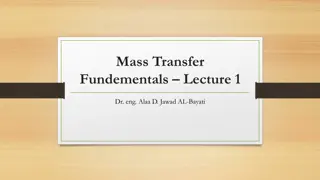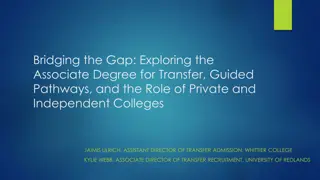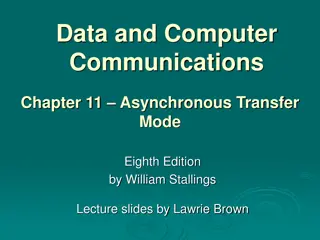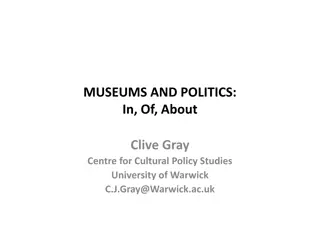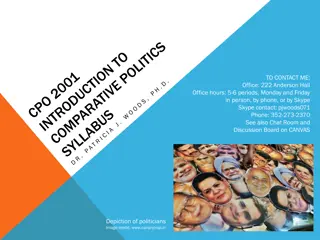Dealing with Politics in Policy Learning and Transfer
Policy learning and transfer involve navigating political choices rather than following mechanistic steps. Challenges include misleading evidence-based policy transfer, overlooking local contexts, and the need for political decisions. Studies highlight voluntary and pressure-driven transfers, warn against failure to adapt policies locally, and emphasize that transfer success does not guarantee policy success.
Download Presentation

Please find below an Image/Link to download the presentation.
The content on the website is provided AS IS for your information and personal use only. It may not be sold, licensed, or shared on other websites without obtaining consent from the author.If you encounter any issues during the download, it is possible that the publisher has removed the file from their server.
You are allowed to download the files provided on this website for personal or commercial use, subject to the condition that they are used lawfully. All files are the property of their respective owners.
The content on the website is provided AS IS for your information and personal use only. It may not be sold, licensed, or shared on other websites without obtaining consent from the author.
E N D
Presentation Transcript
Teaching evidence based policy to fly: How to deal with the politics of policy learning and transfer Paul Cairney, Professor of Politics and Public Policy p.a.cairney@stir.ac.uk @Cairneypaul https://paulcairney.wordpress.com/
But there are three problems 1. Evidence based policy transfer is misleading 2. Blueprint approach ignores local context 3. How to guides exist, but most studies do not identify their use. Why? Policy learning and transfer require political choices, not mechanistic steps.
Political choice and 3 problems with evidence based policymaking 1. The good evidence problem 2. The information processing problem 3. The complexity problem
Evidence based is one of many types of policy learning Epistemic. Experts transmitting knowledge to policymakers. Reflection. Dialogue to incorporate diverse forms of knowledge. Bargaining. Learning how to cooperate/compete effectively. Hierarchy. Actors with authority learn how to impose their aims; others learn the limits to their discretion.
Policy Transfer studies suggest: 1. Some transfer is voluntary Shortcuts to learning: propinquity, entrepreneurs, limited searches for evidence. 2. Some transfer is driven by pressure Encouragement by governments, international norms/ agreements, spillovers , foreign investment.
Some studies warn about failure to: 1. Generate or use enough evidence on what made the initial policy successful 2. Adapt policy to local circumstances 3. Back policy change with sufficient resources But the assumption is that transfer is of a product
Other studies provide caveats: 1. Transfer is really translation or transformation 2. Transfer success not the same as implementation success 3. or policy success The assumption is that failed transfer makes less sense
Political choices combine: evidence and governance Implementation science Story telling Improvement method How should you gather evidence? Hierarchy of evidence, RCTs Practitioner knowledge Service user feedback Mix of evidence Trained practitioners experimenting and evaluating If you think your practice is working, keep doing it. How should you scale up best practice? Uniform model Fidelity to dosage Tell stories, invite people to learn from What aim should you prioritise? Administer the active ingredient Governance principles: localism, respect Training, experimenting, feedback
11 questions to encourage successful evidence based policy transfer
11 questions to encourage successful evidence based policy transfer 1. What problem did policymakers say they were trying to solve, and why? 2. What solution did they produce? 3. Why? 1-3 help establish comparability in agenda setting
11 questions to encourage successful evidence based policy transfer 4. Was the project introduced in a comparable region? 5. Was it introduced nationwide, or in a region which is sufficiently representative of the national experience? 6. How do we account for the role of scale and cultural expectations? 4-6 help establish meaningful comparison
11 questions to encourage successful evidence based policy transfer 7. Evaluated independently, and well? 8. Enough time for long term evaluation? 9. Evaluated more favourably than other solutions? 10. Are we identifying promise or evidence of success? 7-10 help establish evidence base
11 questions to encourage successful evidence based policy transfer 11. How shall we transfer policy at scale? Fidelity and uniformity? Storytelling and discretion? Training and pragmatic approaches to evidence? 11 links good transfer to good policymaking
Take home messages 1. Communication technology helps increase access to information from international experience 2. It also increases the chance to import policy unwisely 3. More evidence is not a substitute for analysis and choice Key choices include: How to define the problem to solve How to identify good evidence on policy transfer How to connect good evidence to good government
THANK YOU Paul Cairney, Professor of Politics and Public Policy p.a.cairney@stir.ac.uk @Cairneypaul https://paulcairney.wordpress.com/
